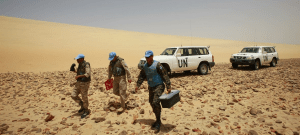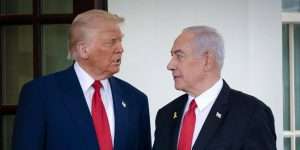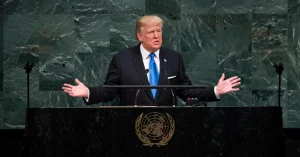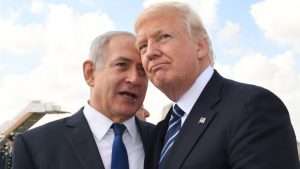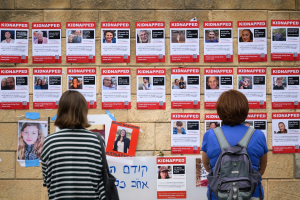Italy Calls for Pragmatic IMF Approach in Tunisia

Italy continues to harangue the international community to turn a blind eye to Tunisia’s abysmal human rights record and the mismanagement of its President and sign off a 2bn dollar IMF loan.
Italy’s Prime Minister Giorgia Meloni said the International Monetary Fund should take a “pragmatic” approach to a bailout for Tunisia, in comments to other G7 leaders in Japan, reports AFP.
The North African country reached a deal in principle with the IMF in October for nearly $2 billion to shore up its troubled economy, but discussions have since stalled.
Meloni, head of Italy’s most right-wing government since the Second World War II, and other European leaders fear economic collapse in Tunisia will increase the flow of migrants to Europe’s shores.
The IMF is pressing for economic reforms to which Tunisian President Kais Saied’s government has refused to commit.
But Rome has urged the organisation to approve an initial, unconditional bailout package.
“Tunisia is in a very difficult situation, with obvious political fragility and the risk of financial default just around the corner,” Meloni told her Group of Seven counterparts at talks on May 20th in Hiroshima, Italian sources said.
“Negotiations between the IMF and Tunisia have effectively been blocked,” Meloni added during a closed-door meeting.
“The IMF has a certain rigidity around the fact that they haven’t obtained the necessary commitments from President Kais Saied … I think their approach should be pragmatic, because otherwise we risk worsening situations that are already compromised.”
On the sidelines of the Hiroshima summit, Meloni also met IMF Managing Director Kristalina Georgieva along with European Commission chief Ursula von der Leyen to discuss immigration “and Tunisia in particular,” the sources said.
The three were briefly joined by US President Joe Biden and French leader Emmanuel Macron, they added.
The IMF has called for legislation to restructure more than 100 state-owned firms, which hold monopolies over many parts of Tunisia’s economy and in many cases are heavily indebted.
But talks on the deal have stalled with Saied not committing to restructuring public bodies and lift subsidies on basic goods for fear that austerity measures would “impoverish the poor”.
France has said it considers the finalisation of an IMF deal a priority and let Italy take the lead in making the case for prioritising financial assistance to Tunisia.
In their final statement, the G7 leaders “encouraged” the Tunisian government “to meet the democratic aspiration of its people, to address its economic situation and to reach an agreement with the IMF.”
AFP
Want to chase the pulse of North Africa?
Subscribe to receive our FREE weekly PDF magazine





